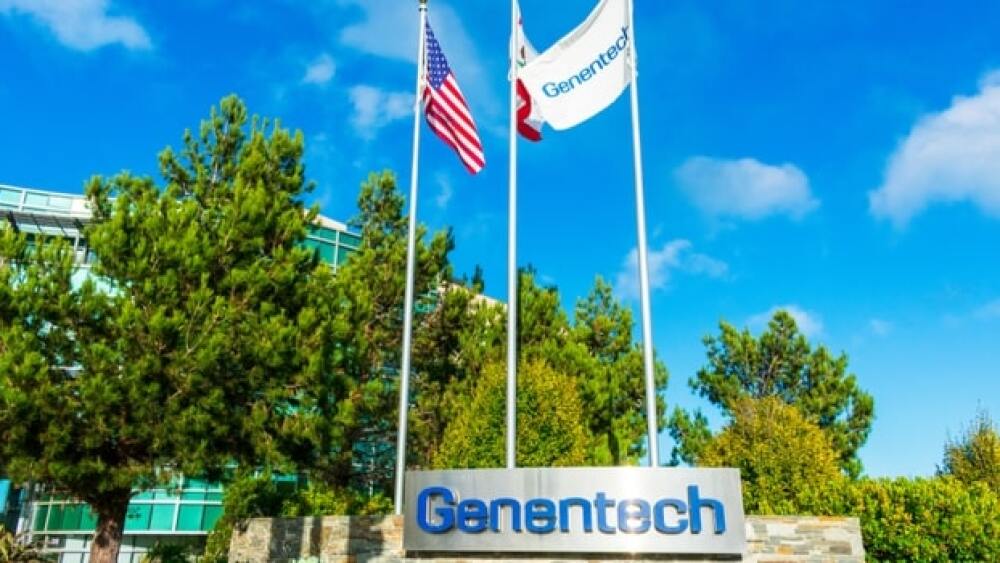BioSpace caught up with Charles Fuchs, M.D., SVP, Global Head of Oncology & Hematology Product Development, Genentech during the ASCO meeting on personalized cancer care.
The concept of personalized cancer care is getting more fame in recent times. (Michael Vi/Shutterstock)
Genentech, a leader in biomarker-based oncology therapies, presented new data from 19 approved and investigational medicine across 20 cancer types this year at the American Society of Clinical Oncology (ASCO) Annual Meeting, advancing its mission to bring innovative personalized cancer care to patients from all backgrounds.
BioSpace caught up with Charles Fuchs, M.D., SVP, Global Head of Oncology & Hematology Product Development, Genentech during the meeting.
Some Question Related to Personalized Cancer Care
BioSpace: Companies have talked about personalized cancer care for years. When will it become routine?
Charles Fuchs: That transition is underway now, and I can confidently say the era of personalized cancer care is here.
Cancer’s complexity has made progress slower than many hoped, but personalized therapy – as targeted drugs or immunotherapies – is already the norm for a large share of patients with breast cancer, melanoma, lung cancers and many blood cancers and lymphomas. New trial results and FDA approvals are happening at an unprecedented pace, and a growing majority are for personalized medicines.
At Genentech, much of our oncology pipeline consists of personalized treatments with associated biomarkers. New data presented at ASCO includes innovative studies (ALPHA-T, MyPathway, TAPISTRY and MyTACTIC) exploring tumor agnostic development, which bring together next-generation sequencing with patient-centric clinical trial design to deliver better results to more patients, regardless of where the cancers originate.
Beyond ASCO, we also are working to advance access to cancer screening, expand access to comprehensive biomarker testing, and harness data, analytics and digital technology to help personalized cancer care for all patients.
BSp: What are the hurdles in using biomarkers to match patients to therapies?
CF: The most serious hurdle is the slow uptake of next-generation sequencing in cancer care. Since Herceptin launched more than two decades ago, treatment advances have accelerated to the point that patients today should start their cancer journey with all the necessary diagnostic information.
Next-generation sequencing is one essential part of the solution. It not only to guides treatment choices and helps match patients to clinical trials now in months or years down the line, but it’s also a vital source of real-world data for researchers, regarding patient characteristics and unmet needs.
In many cases, however, we’re the first or only company tackling certain mutations that, while rare, represent urgent patient needs.
BSp: How is clinical trial design changing? Genentech’s Alpha-T study, for instance, lets people participate from their homes.
CF: The pandemic proved that trials can be far more flexible and convenient for patients without sacrificing scientific validity. It’s why the FDA, ASCO and others have pressed to sustain many workarounds – from telemedicine to home administration of study drugs – that helped keep cancer trials on track.
Genentech has been working to decentralize and increase access to our trials for years, and ALPHA-T is an exciting example of that. We are extremely proud that through a collaboration with Foundation Medicine and Science37, the ALPHA-T study increases equity in clinical participation through a decentralized approach that enabled patients to participate from their own homes while under the care of their local oncologist…thanks to telemedicine and periodic home nursing visits.
This trial is also a great example of why next-generation sequencing needs to be more widely embraced in personalized cancer care. Patients with various tumor types are eligible for enrollment in ALPHA-T, but only if their doctors first test them for ALK.
BSp: Are decentralized clinical trials broadly feasible?
CF: We hope trials like ALPHA-T will become the norm. While it may not work the same way in every situation, as Alecensa – an oral medicine – is especially suitable for home administration, we’ll keep expanding our use of decentralized approaches, telemedicine and tumor-agnostic therapy where we can.
Decentralized trials are critical to achieving more equitable care (as well as better care for more patients), since limited trial access has always driven racial, geographic and other disparities in cancer outcomes.
To that end, we have partnered with Stand Up to Cancer on its first Health Equity Breakthrough Team. A New York City-based team will receive $6 million to increase Black, Indigenous and People of Color (BIPOC) participation in cancer clinical trials by partnering with community organizations to raise awareness, educating providers and linking patients to trials through novel digital tactics.
BSp: How does the MYTACTIC trial expand access?
CF: This study is enrolling patients at community-based sites in the U.S. (where, historically, access to clinical trials has been limited) to direct them to appropriately targeted treatments based on the results of comprehensive genomic profiling.
Our Medical Affairs colleagues are working with OneOncology, a leading network of community practices, and up to 60 other community sites, to offer their patients an innovative study designed with seven biomarker “baskets” that involve 10 ten treatment arms with 11 different study drugs, including some novel combination treatments. Study drugs include medicines being developed by Genentech and by partners, as well as chemotherapy. As a true personalized cancer care trial, all treatments are linked to specific biomarkers and generally open to all solid tumor types.
BSp: What are the key takeaways from Genentech’s many abstracts at ASCO this year?
CF: We are particularly excited about our compelling immunotherapy data from the IMpower010 trial (abstract 8500) in lung cancer. Now, Tecentriq is the first and only cancer immunotherapy shown to help many people with resected lung cancer live longer without their cancer returning, which may provide new hope for patients with earlier stage disease.
In breast cancer, we are contributing to the body of evidence in hormone receptor (HR)-positive disease, the most prevalent type of breast cancers. Our data (abstract 1017) further supports the tolerable safety profile and single agent clinical activity of giredestrant, a third-generation oral selective estrogen receptor degrader (SERD), as well as pharmacodynamics data (abstract 577) from studies in HR-positive early and metastatic breast cancer.
We’re also demonstrating the significant impact of coupling biomarker testing with our portfolio of targeted therapies. Our evolved tumor-agnostic approaches are bringing highly personalized medicine and better results to more patients. In addition to the novel trials I mentioned earlier, data from our new ARROW study of Gavreto (abstract 9089) show rapid, potent, and durable clinical activity in patients with metastatic RET fusion-positive non-small cell lung cancer (regardless of prior therapies), including in patients with poor prognoses not eligible for platinum-based therapy. These data highlight the need for early RET fusion-positive testing to identify candidates who may benefit from treatment with Gavreto.
Finally, with the largest portfolio of medicines for blood cancer – both on the market and in the pipeline – Genentech is bringing forward new solutions in difficult-to-treat lymphomas. This includes positive data from both our emerging bispecifics program – including mosunetuzumab and glofitamab (abstracts 7519 and 752) – and from novel therapeutic combinations with Polivy (abstract 7512).
This was all about personalized cancer care and much more in the field of biosciences.






